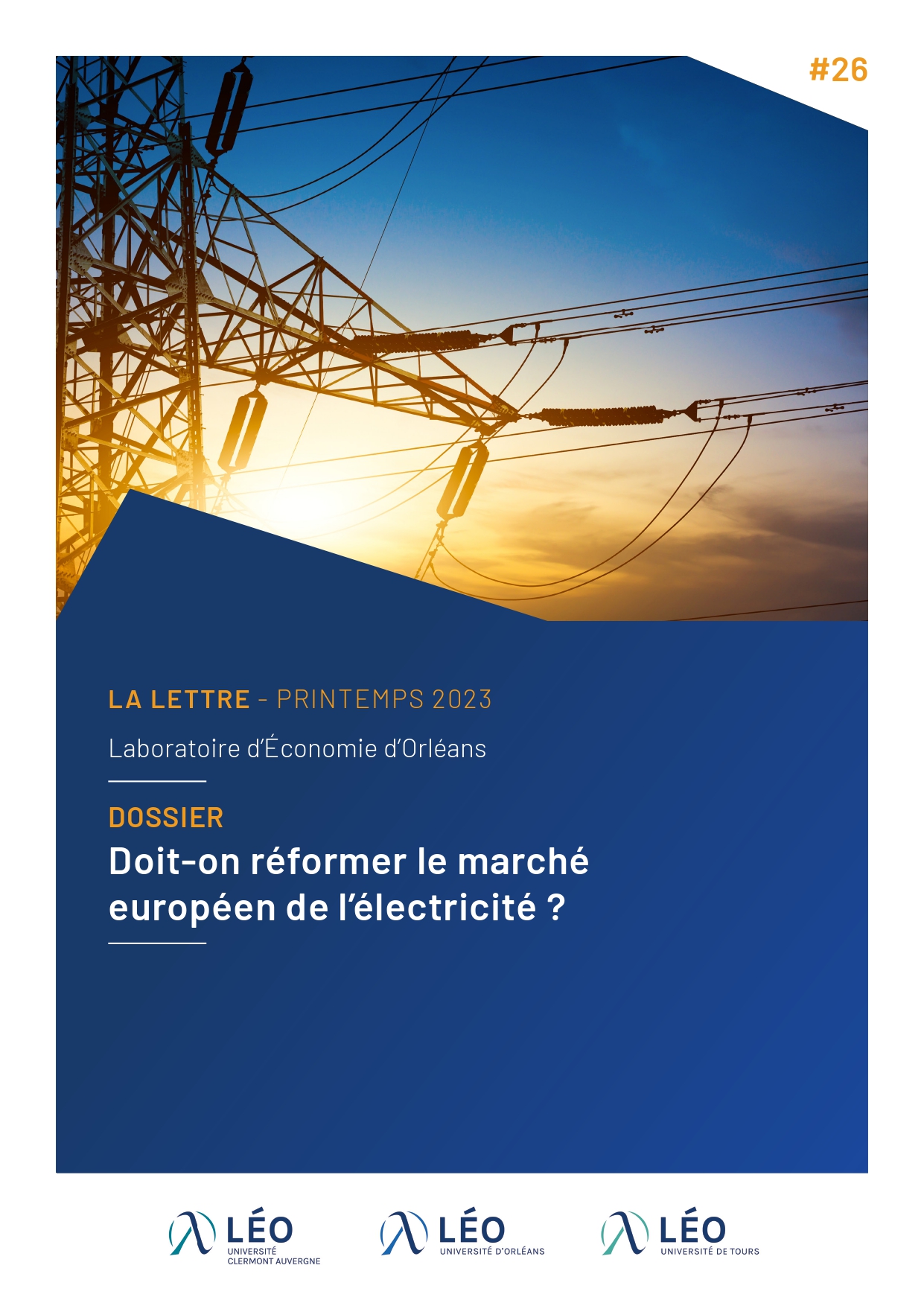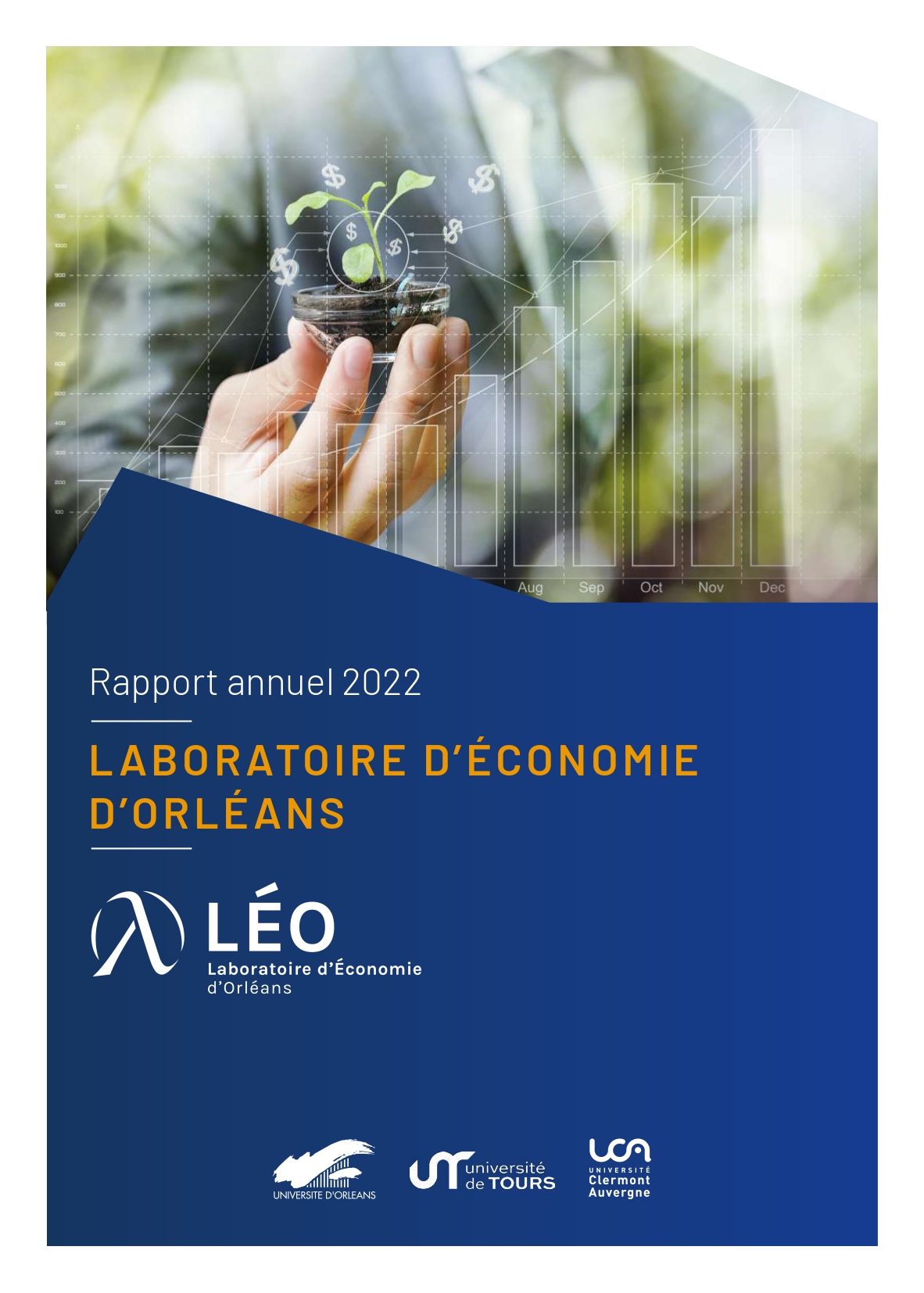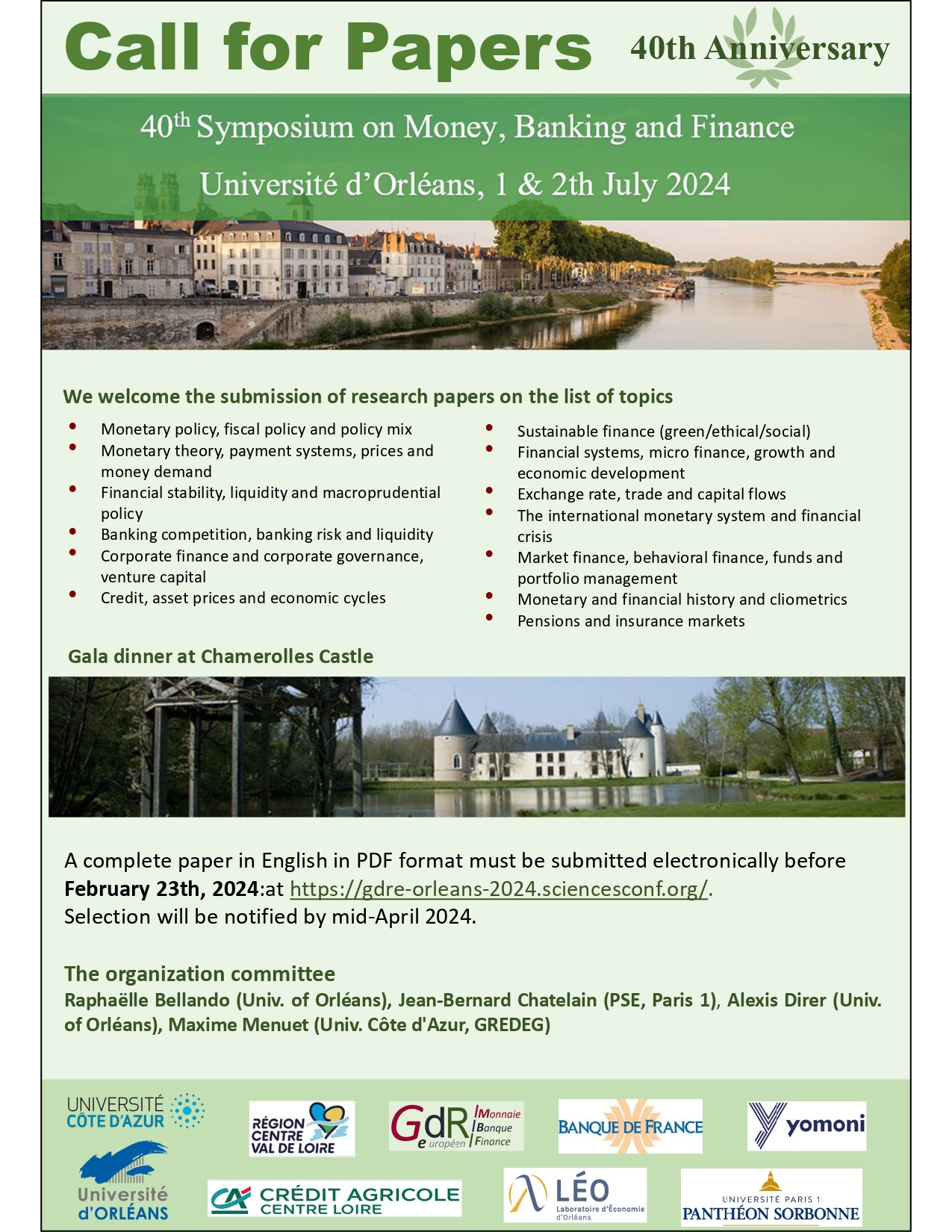
« 40th Symposium on Money, Banking and Finance »

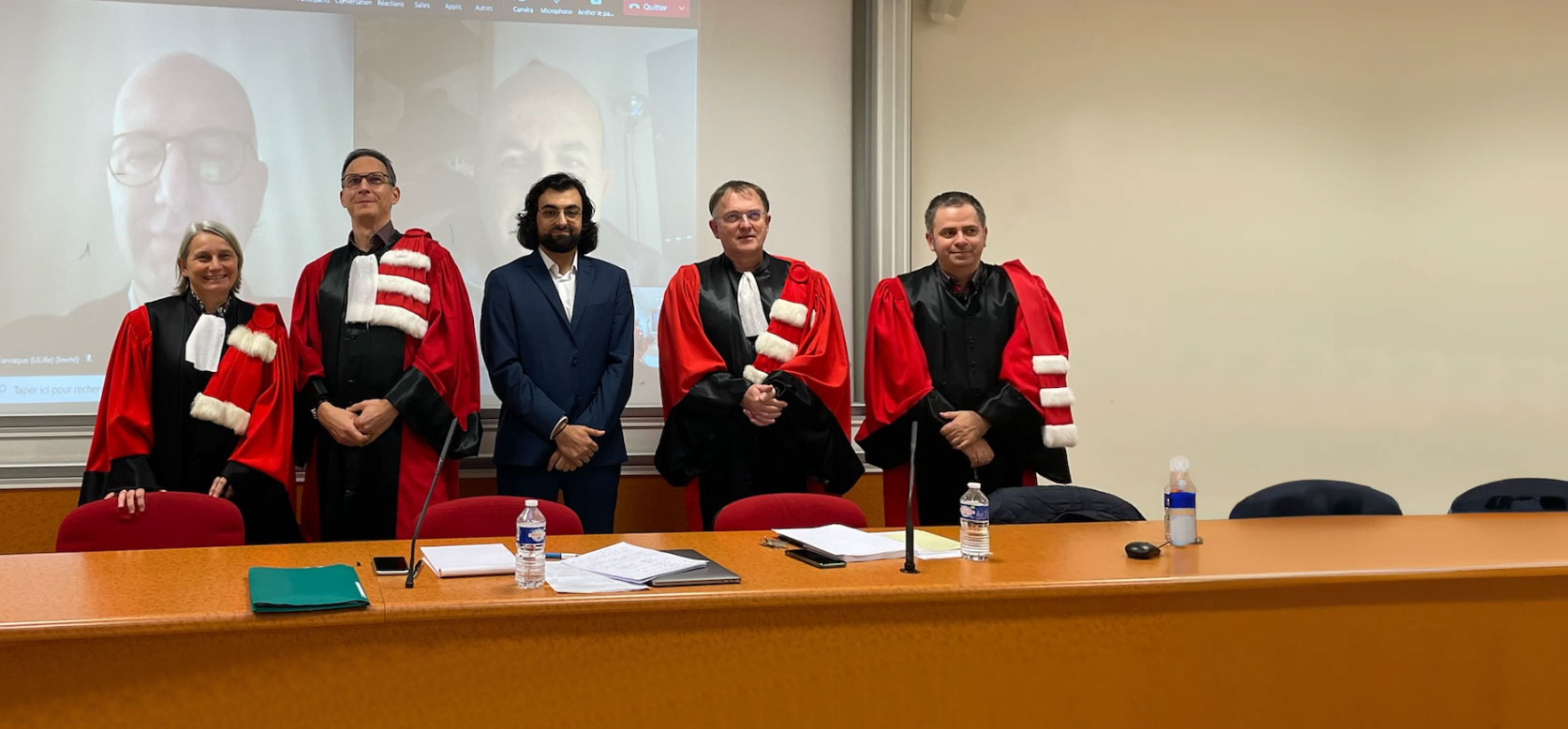
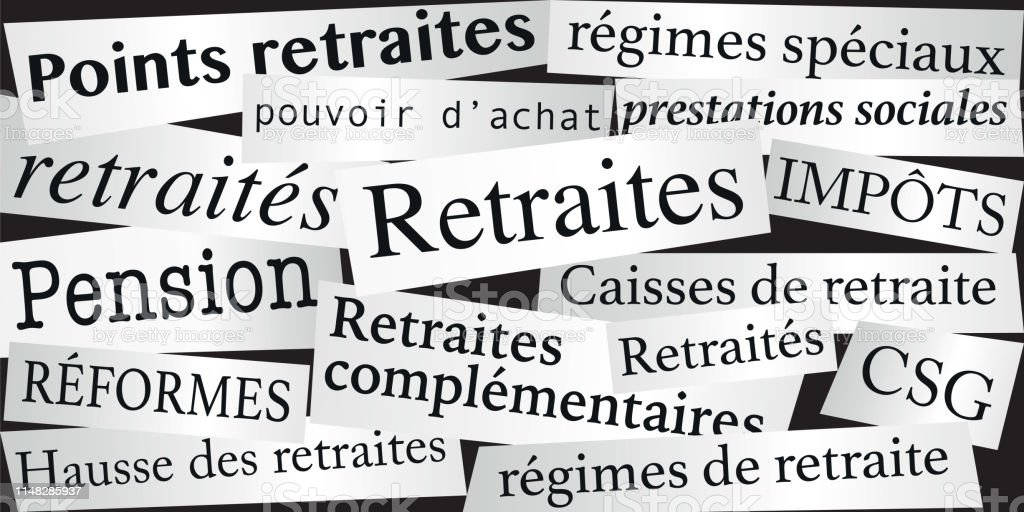
L'Économie en centre-ville d’Orléans : le LÉO et le futur campus universitaire ouvriront sur le site Porte-Madeleine en Septembre 2026
Les membres et président du jury félicitent chaleureusement Hugo ORIOLA pour sa brillante soutenance de thèse qui porte sur l'impact direct ou indirect des actions de la banque centrale sur le résultat des élections.
Pourquoi est-il si difficile de réformer les retraites en France ? Une réflexion d'Anne Lavigne, Professeur en économie au LÉO et conseillère au COR de 2016 à 2022
Le LÉO est un laboratoire d'économie rassemblant des enseignants-chercheurs de l'Université Clermont-Auvergne, de l'Université d'Orléans et de l'Université de Tours.
Il comprend une centaine de membres, dont les recherches couvrent trois grands domaines de compétence :

« 40th Symposium on Money, Banking and Finance »

« 3rd edition: International Conference on Economics and Management »
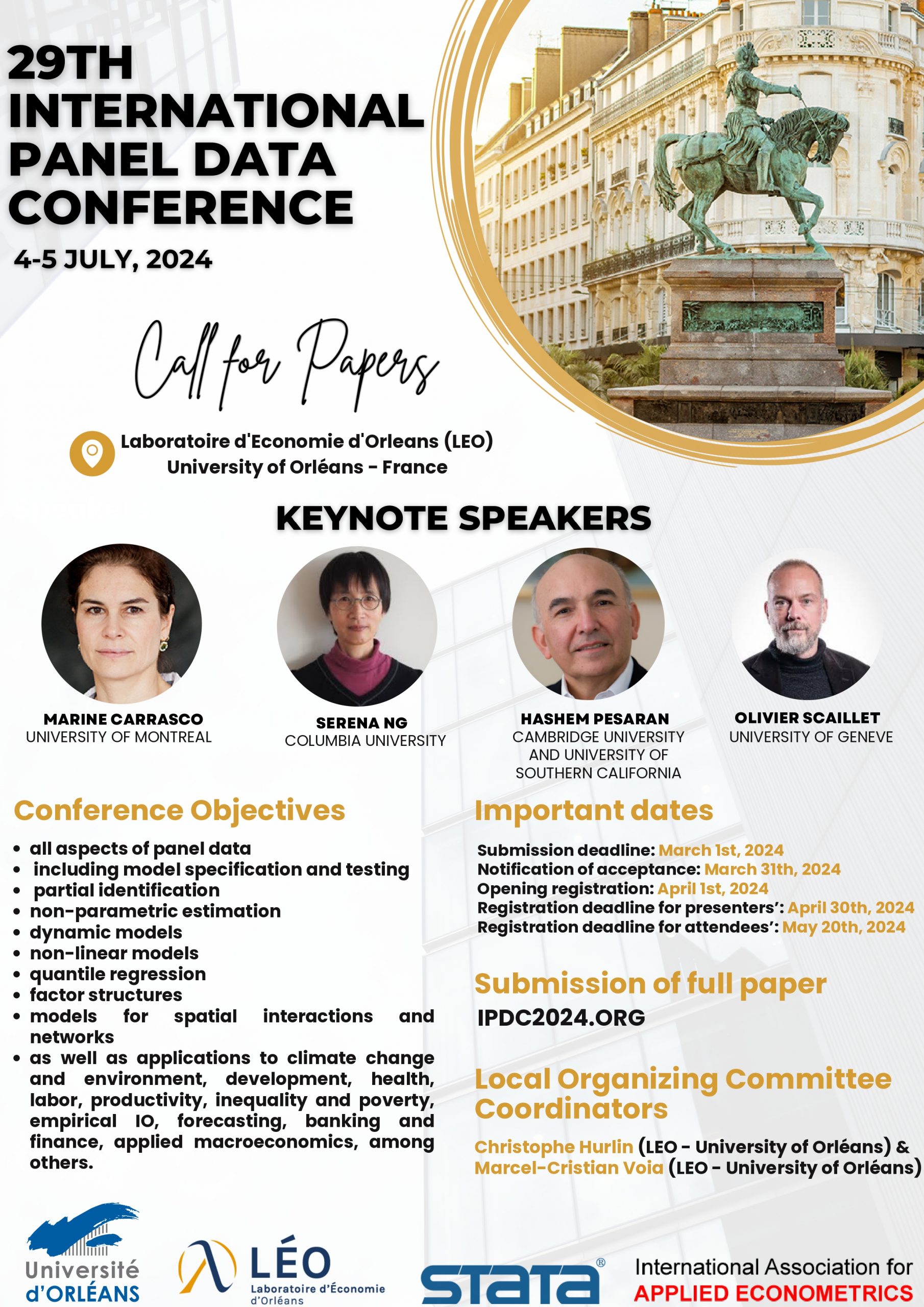
« 29th International Panel Data » Conference

Table ronde « Comment maintenir la confiance dans l’intelligence artificielle à l’ère de ChatGPT »
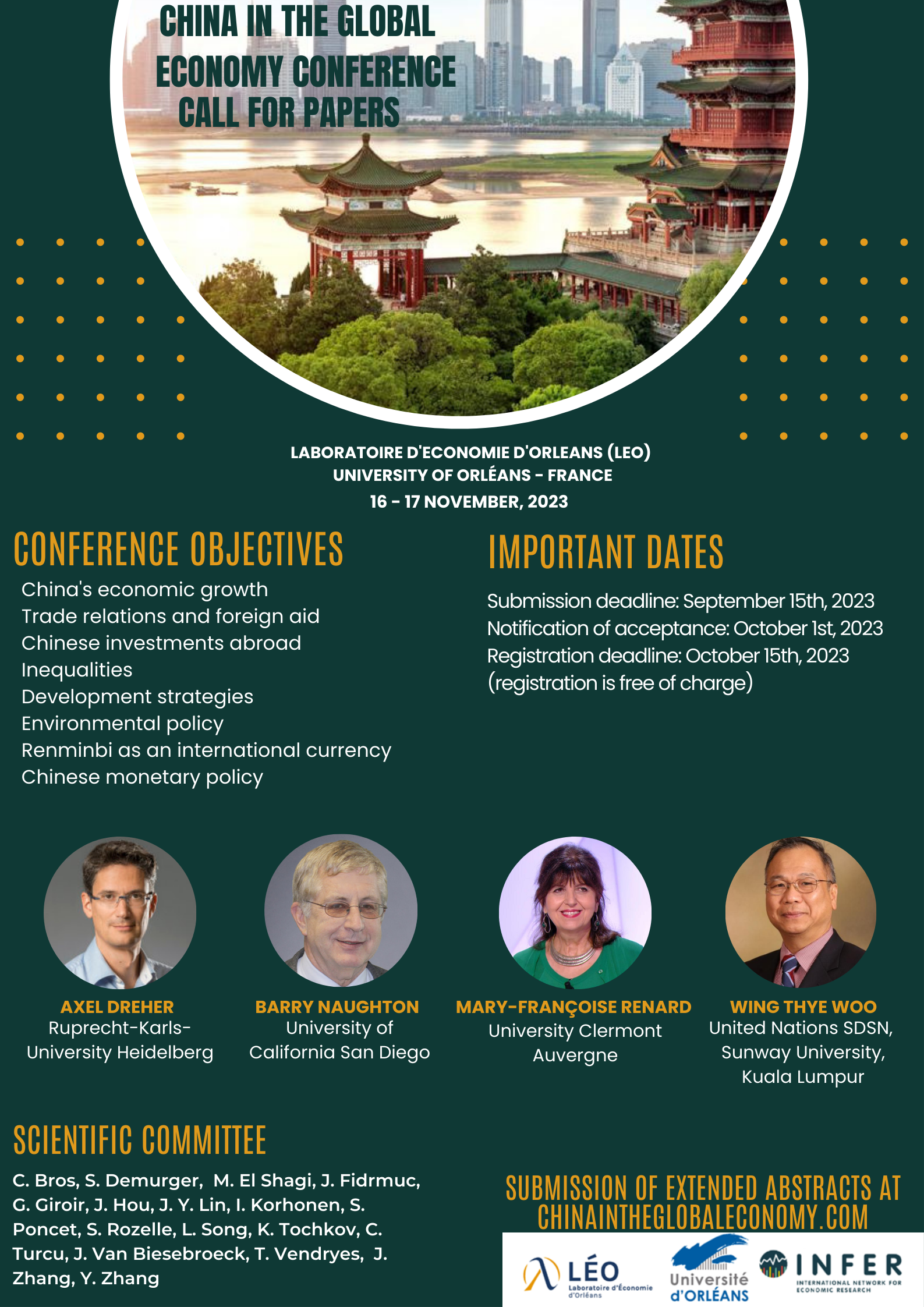
Conférence « China in the global economy »
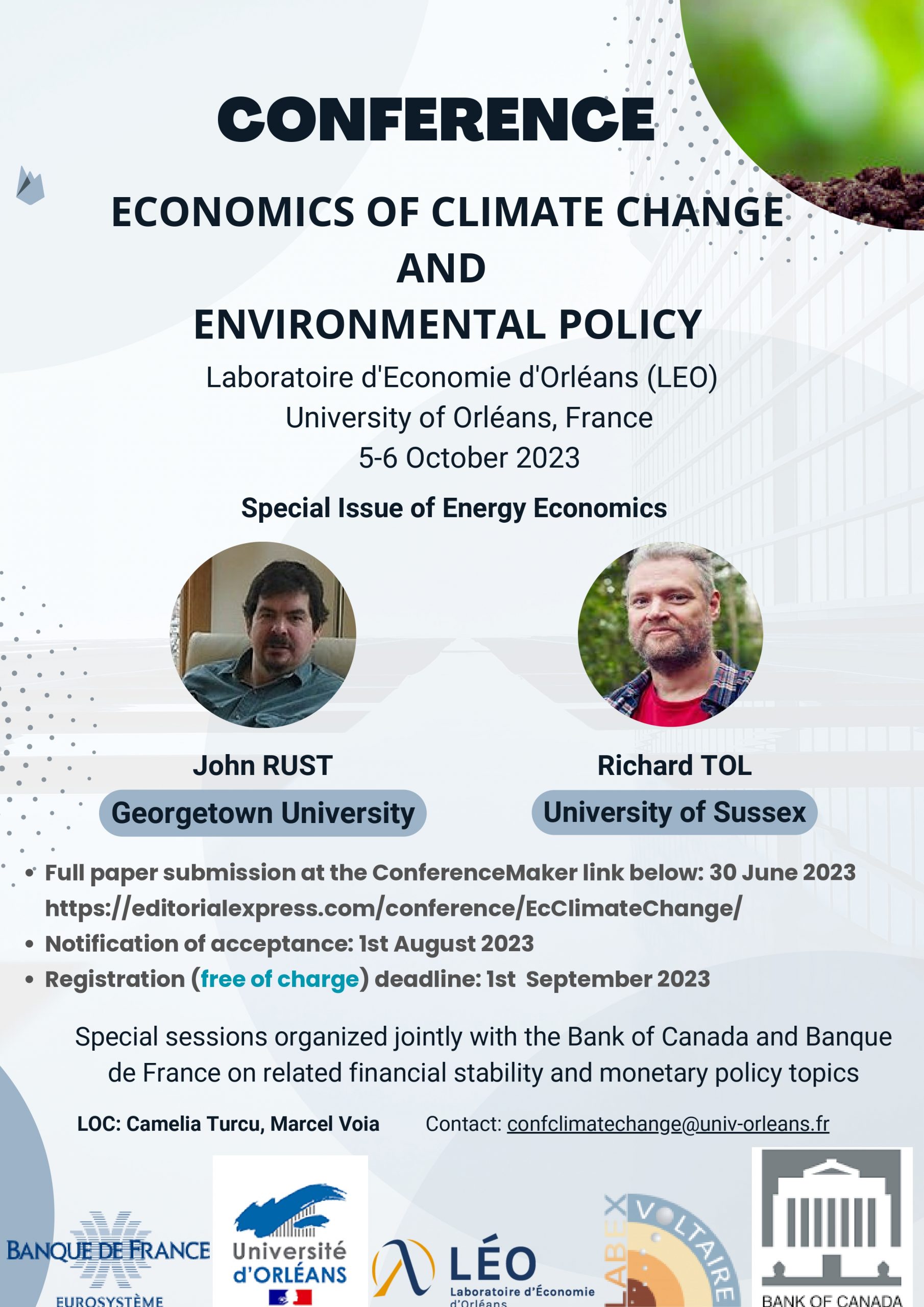
Conférence « Economics of climate change and environmental policy »

Digital wage payments and financial inclusion in Developing and Emerging Economies

Beyond the Classroom? Secondary School Expansion and Women’s Marital Outcomes in Senegal

Analyse des impacts du bruit routier sur la consommation médicamenteuse dans l’étude Brouhaha de la cohorte de santé E3N

Poor Planning: Investors who Save Regularly Save Less Overall

Factors Influencing the Decline of Manufacturing Pollution in the European Union: A Study of Productivity, Environmental Regulations, Expenditure, and Trade Costs

Working Conditions and Mental Health
Fiscal outcomes, current account imbalances, and institutions in Europe: Exploring nonlinearities
Kady Keita, Isabelle Rabaud, Camelia Turcu
International Economics - 2023-10
We analyze the fiscal outcomes associated to the current account imbalances within Europe. We hypothesize that the effects of current account imbalances on fiscal variables within the European Union are nonlinear and that the nonlinearity is modulated by the quality of governance. We use data on 28 European Union countries from 2000 to 2019, apply a Panel Smooth Transition Regression (PSTR) approach and proxy governance by measures of corruption. We find evidence of a nonlinear relationship: the fiscal effects related to current account imbalances are differentiated among European countries. On the one hand, we find a positive elasticity of fiscal balance to current account balance when the quality of institutions is low. This suggests that in countries with high corruption, a deterioration of the current account results in a degradation of fiscal balance and an increase of debt. On the other hand, we find a negative elasticity of fiscal balance to current account balance when the quality of institutions is high. This implies that in countries with low corruption, larger current account imbalances can be related to an improved fiscal balance and a lower debt. Robustness checks comfort our findings.
Lien HALCan blockchain help improve financial inclusion? A comparative study
Yilmaz Ҫiğdem, Sébastien Galanti
2023-07-12
The financial inclusion of poor populations and/or refugees can be hindered by difficulties in proving or reluctance to disclose their identity. Bank accounts and mobile money services require that identities be provided. Financial digital services based on blockchain technology can provide anonymous authentication to poor/refugee populations and be a first step towards financial inclusion. We scrutinize several examples of such projects by comparing them with blockchain-based digital identity or financial inclusion programmes that are not necessarily restricted to poor/migrant populations. We use social network activity as a proxy for the failure or success of such projects. We find that blockchain projects targeted to migrants and poor individuals are more likely to fail than are those targeted to all. We more closely examine one particular case to check the consistency of our proxy. We present plausible explanations for our result: the discrepancy between the needs of populations of low socioeconomic status and the proposed blockchain-backed financial services and the fact that maintaining such services is energy intensive.
Lien HALMineral resources and the salience of ethnic identities
Nicolas Berman, Mathieu Couttenier, Victoire Girard
The Economic Journal - 2023-07
This paper shows how ethnic identities may become more salient due to natural resources extraction. We combine individual data on the strength of ethnic—relative to national—identities with geo-localised information on the contours of ethnic homelands, and on the timing and location of mineral resources exploitation in 25 African countries, from 2005 to 2015. Our strategy takes advantage of several dimensions of exposure to resources exploitation: time, spatial proximity and ethnic proximity. We find that the strength of an ethnic group identity increases when mineral resource exploitation in that group’s historical homeland intensifies. We argue that this result is at least partly rooted in feelings of relative deprivation associated with the exploitation of the resources. We show that such exploitation has limited positive economic spillovers, especially for members of the indigenous ethnic group; and that the link between mineral resources and the salience of ethnic identities is reinforced among members of powerless ethnic groups and groups with strong baseline identity feelings or living in poorer areas, or areas with a history of conflict. Put together, these findings suggest a new dimension of the natural resource curse: the fragmentation of identities, between ethnic groups and nations.
Lien HALInnovations en matière de micro finance
Christian Rietsch
2023-06-19
Résumé non disponible.
Lien HALPayment for Environmental Services and environmental tax under imperfect competition
Anneliese Krautkraemer, Sonia Schwartz
2023-06-19
This paper designs the second-best Payment for Environmental Services (PES) when it interacts with a Pigouvian tax under imperfect competition. We consider farmers who face a choice between producing a conventional or an organic agriculture good. The regulator sets a Pigouvian tax on conventional agriculture as it generates environmental damages, as well as a PES on uncultivated land as buffer strips favor biodiversity. The conventional agriculture sector is perfectly competitive, unlike the organic agriculture sector, which is organized under an oligopoly. We show that the second-best level of the Pigouvian tax is higher than the marginal damage whereas the PES is lower than the marginal benefit. We then introduce the social marginal cost of public funds (MCF) and show that the Pigouvian tax increases with the MCF while the PES decreases with the MCF provided that demand for the conventional agriculture good is inelastic. We thus highlight a contributory component of the environmental incentive tax. This paper also identifies specific cases where the PES is ineffective in promoting biodiversity.
Lien HALOriginal Sin: Fiscal Rules and Government Debt in Foreign Currency in Developing Countries
Ablam Estel Apeti, Bao-We-Wal Bambe, Jean-Louis Combes, Eyah Denise Edoh
2023-06-15
Most developing economies borrow abroad in foreign currency, which exposes them to the problem of "original sin." Although the literature on the issue is relatively extensive, little is said about the role of fiscal frameworks such as fiscal rules in controlling original sin. Hence, using a panel of 59 developing countries over the period 1990-2020 and applying the entropy balancing method, we find that fiscal rules reduce government debt in foreign currency, and that the effects are statistically and economically significant and robust. In addition, the strengthening of the rule, better fiscal discipline prior to the adoption of the reform, financial development, financial openness, flexibility of the exchange rate regime, and sound institutions amplify the negative effect of fiscal rules on original sin.
Lien HALPayment for Environmental Services and environmental tax under imperfect competition
Anneliese Krautkraemer Sonia Schwartz
2023/06/19
Entrepreneurship in developing countries: can mobile money play a role?
Ablam Estel Apeti Jean-Louis Combes Eyah Denise Edoh
2023/06/19
Innovations en matière de micro finance
Christian RIETSCH
2023/06/19
Mining the forests: do protected areas hinder mining-driven forest loss in Sub-Saharan Africa?
Jean-Louis COMBES Pascale COMBES MOTEL Manegdo Ulrich DOAMBA Youba NDIAYE
2023/06/19
Investor attention and intraday market reaction to ECB announcements
Roland Gillet Matthieu Picault Thomas Renault
The art of conducting macropru
Yannick Lucotte, Florian Pradines-Jobet
2023/06/19
The inflation loop is not a myth
Yannick Lucotte, Florian Pradines-Jobet
2023/04/11
The Effects of Climate Change on Public Investment Efficiency in Resource-rich Countries : Evidence from Stochastic Frontier Analysis.
Yacouba COULIBALY
2023/04/11
Are tax rates still decisive in FDI investment choice or what drives sectoral FDI nowadays?
Nicolae-Bogdan IANC
2023/04/11
Do Sanctions or Moral Costs Prevent the Formation of Cartel-Type Agreements ?
Béatrice BOULU-RESHEF Constance MONNIER-SCHLUMBERGER
2023/04/11

